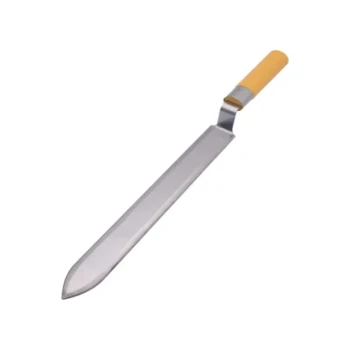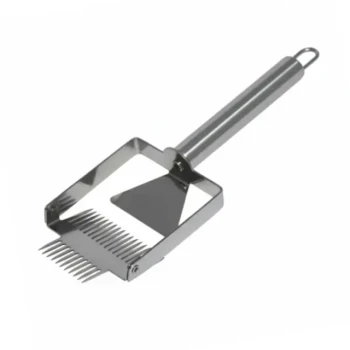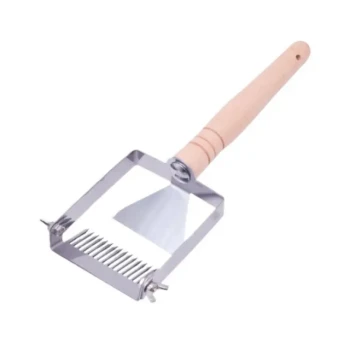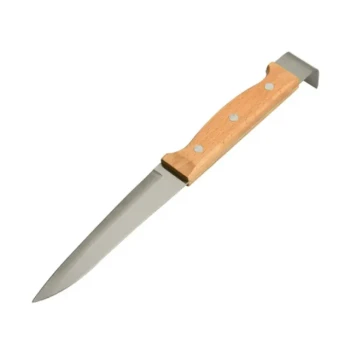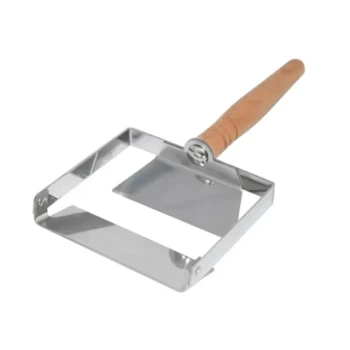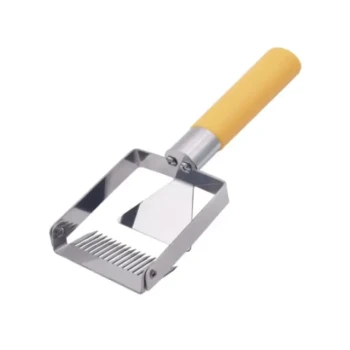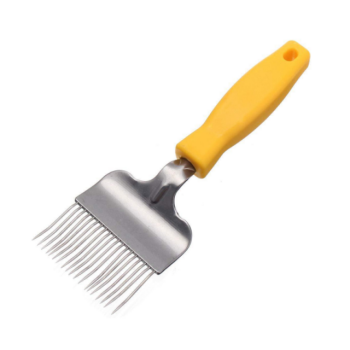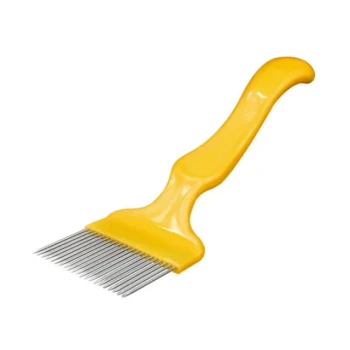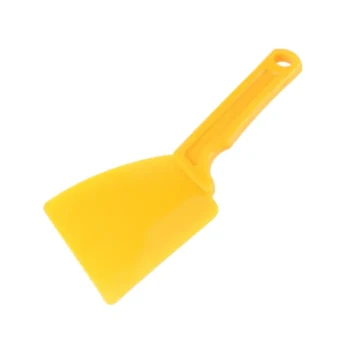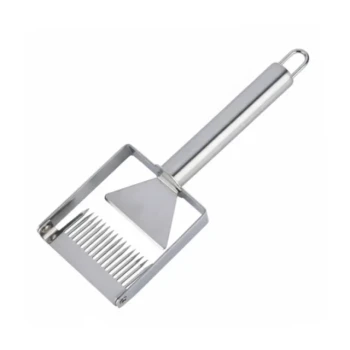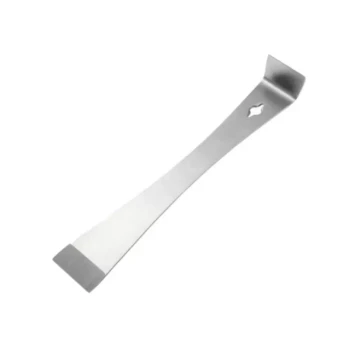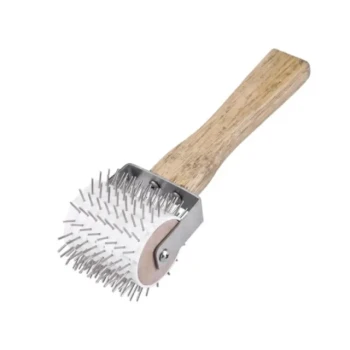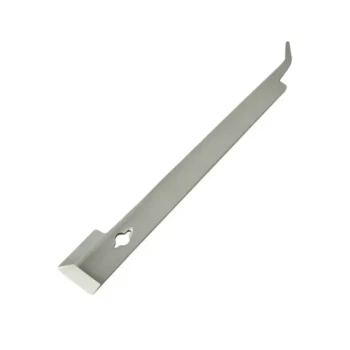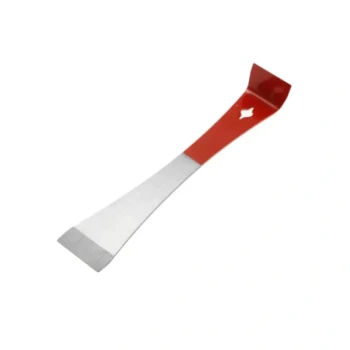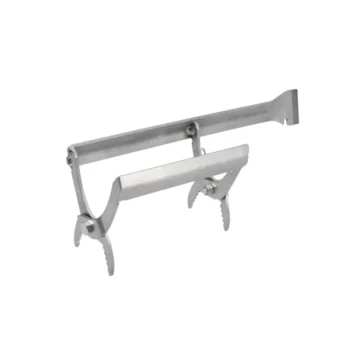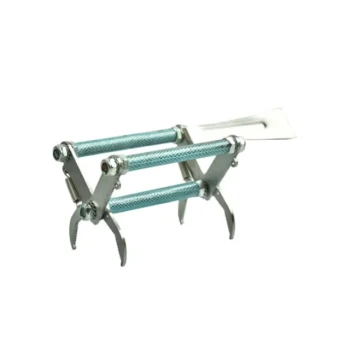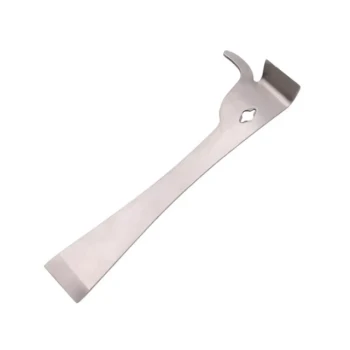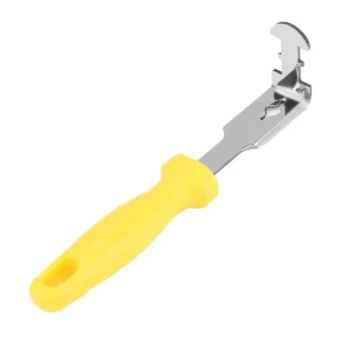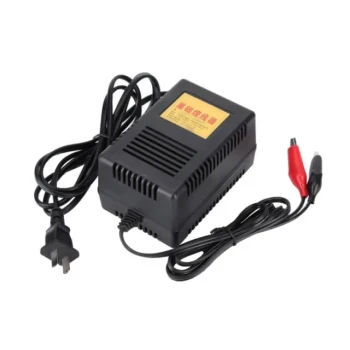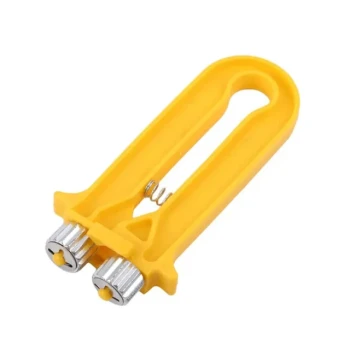The most effective workflow for uncapping honey frames involves preparing a dedicated workspace, organizing your frames in batches, and using a heated knife to slice the wax cappings from top to bottom. Once the main surface is clear, a capping scratcher is used to open any missed cells before placing the frame in the extractor. This systematic process maximizes efficiency and minimizes mess.
The goal of an uncapping workflow is not just to open honey cells, but to create a rhythmic, clean, and efficient process. Success depends less on a single "right" way and more on matching your tools and technique to the scale of your harvest.
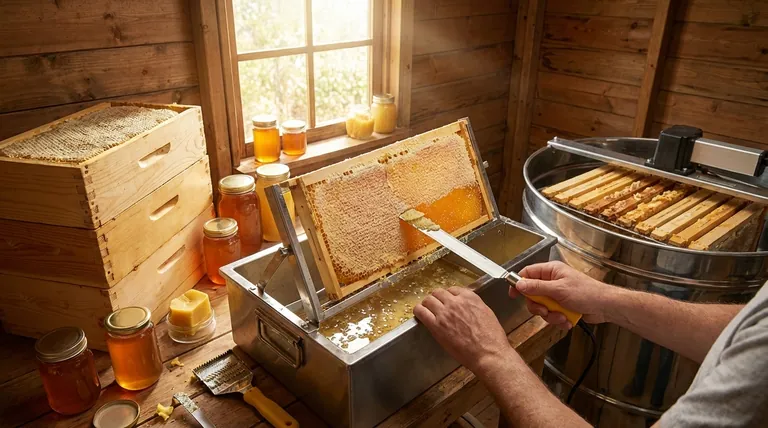
Preparing Your Uncapping Station
Before the first frame is touched, your success is determined by your preparation. A well-organized station transforms a sticky chore into a smooth operation.
Gather Your Essential Tools
Your primary tool will do most of the work, while secondary tools handle the details.
- An Uncapping Knife: An electric knife is highly recommended as its heat slices through wax with minimal effort. A "cold" serrated knife also works but requires more sawing motion.
- An Uncapping Scratcher or Fork: This is essential for opening honey cells in low spots on the comb that the knife blade missed.
- A Cappings Container: You need a dedicated bin or tank to hold the frame and collect the wax cappings, which will be full of honey. A container with a sieve or filter is ideal for separating the honey from the wax.
- A Frame Holder: A simple rack or specialized stand to hold the frame securely while you work is critical for safety and clean cuts.
Set Up an Efficient Workspace
Your physical layout dictates your workflow's rhythm. Position your full honey supers on one side, your uncapping station in the middle, and your extractor on the other side.
This creates a clear "production line," preventing you from moving sticky frames back and forth over clean areas. Cover your floors and surfaces to make the inevitable cleanup faster.
Organize Frames in Batches
Work on one super's worth of frames at a time. Uncap all of them, place them in the extractor, and then start the extraction process.
This batch-processing method is far more efficient than uncapping a single frame, extracting it, and then repeating. It helps you find a rhythm, reduces downtime, and contains the mess to a single, focused period.
The Step-by-Step Uncapping Process
With your station prepared, the actual uncapping process is straightforward and methodical.
Step 1: Secure the Frame
Place the frame vertically on your frame holder inside your cappings container. The end bar should rest securely on the holder, giving you a stable base to work against.
Step 2: Uncap from Top to Bottom
If using a heated electric knife, let it warm up fully. Start at the top of the comb and slice downwards with a gentle, consistent motion. Let the heat do the work.
Angle the blade slightly outwards so the sheet of cappings falls away from the frame and into your container below.
Step 3: Address Missed Areas
No knife will get every cell. Inspect the frame for any remaining capped cells, which often occur in dips or uneven parts of the comb.
Use your uncapping fork or scratcher to puncture these remaining cappings. A quick flicking motion is all that is needed to open them for the extractor.
Step 4: Place the Frame in the Extractor
Once a frame is fully uncapped on both sides, place it immediately into your honey extractor. Repeat the process until the extractor is full, then begin your spin cycle.
Understanding the Trade-offs
The "best" tool is often a matter of balancing speed, cost, and desired outcome.
Electric Knife vs. Uncapping Plane
An electric knife is fast, efficient, and requires little physical force, making it ideal for larger harvests. However, it requires a power source and presents a burn risk.
An uncapping plane is similar but can be more aggressive, potentially removing more wax and honey than necessary if not used carefully.
Uncapping Fork vs. Roller
A fork or scratcher is precise. It allows you to target individual cells and is the best tool for preserving the underlying comb structure. However, it is very slow to use as a primary tool.
An uncapping roller with sharp points is much faster than a fork for opening large patches, but it can damage the wax comb, requiring more repair work from the bees.
Making the Right Choice for Your Harvest
Tailor your workflow to your specific goals to ensure a successful and rewarding extraction day.
- If your primary focus is speed and a large harvest: Invest in an electric knife and organize your frames into batches for a streamlined, assembly-line process.
- If your primary focus is preserving perfect comb integrity: Use a sharp knife for the bulk of the work and a fork for detailed cleanup, taking your time on each frame.
- If your primary focus is a small harvest with minimal investment: A simple serrated "cold" knife or an uncapping fork can uncap an entire hive; it will just require more time and effort.
By choosing the right tools and establishing a clear rhythm, you can turn uncapping from a daunting task into a satisfying final step of the beekeeping season.
Summary Table:
| Workflow Step | Key Action | Recommended Tool(s) |
|---|---|---|
| Preparation | Set up a dedicated station with a clear 'production line' | Frame holder, cappings container |
| Uncapping | Slice wax cappings from top to bottom | Heated electric knife |
| Cleanup | Open missed cells and preserve comb | Uncapping fork/scratcher |
| Extraction | Load uncapped frames into the extractor in batches | Honey extractor |
Ready to Optimize Your Honey Harvest?
A smooth, efficient uncapping process is the foundation of a successful harvest. At HONESTBEE, we supply commercial apiaries and beekeeping equipment distributors with the high-quality, wholesale-focused tools you need to master this workflow.
Whether you're processing a few hives or a large commercial operation, our reliable uncapping knives, scratchers, and extraction equipment are designed for durability and performance.
Contact our expert team today to discuss your specific needs and discover how HONESTBEE can help you build a more productive and profitable beekeeping operation.
Visual Guide
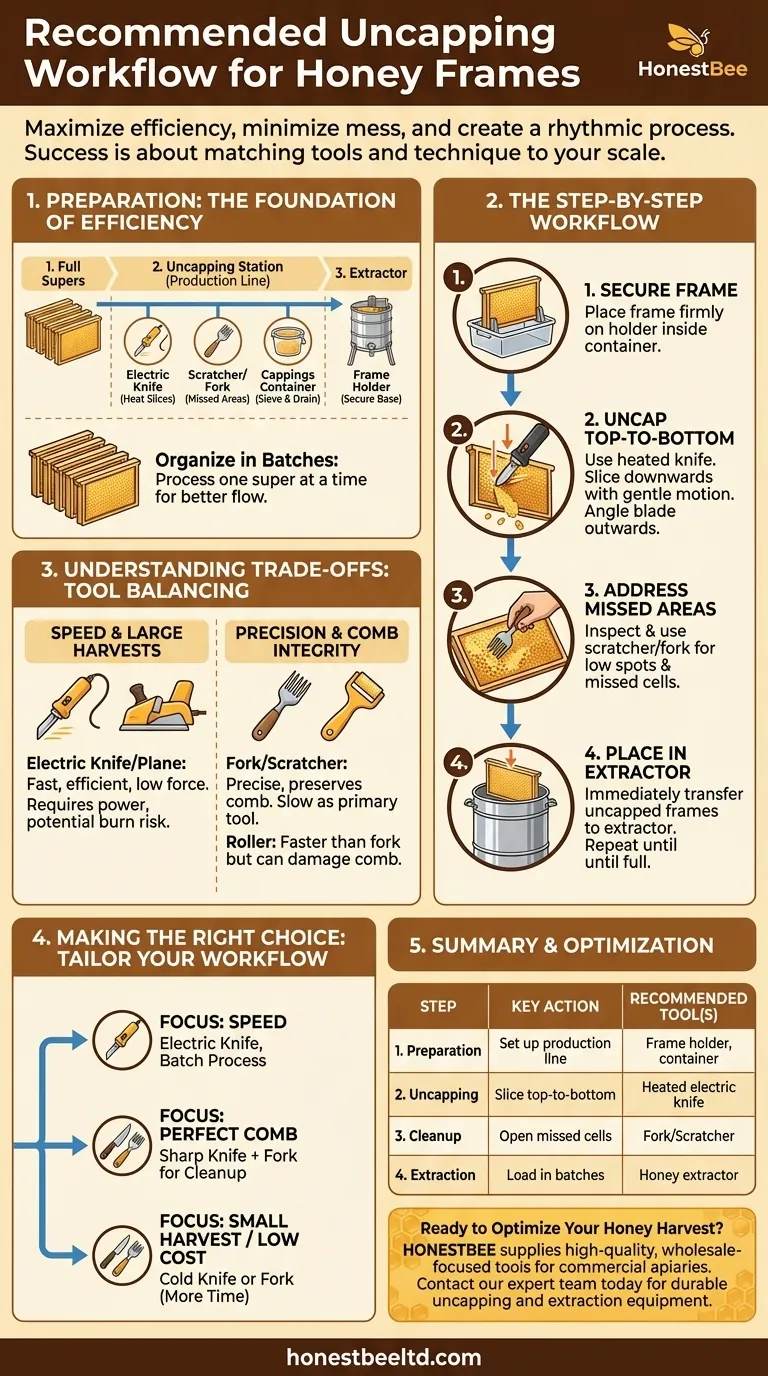
Related Products
- Professional Stainless Steel Double-Sided Honey Uncapping Knife
- All Stainless Steel Double Sided Pivoting Honey Uncapping Fork
- Adjustable Stainless Steel Honey Uncapping Fork with Scraper for Beekeeping
- Professional Compact Multi-Function Uncapping Knife for Beekeeping
- Stainless Steel Dual Blade Uncapping Plane
People Also Ask
- What are the essential tools for uncapping honey frames? Choose the Right Tool for Your Apiary
- What is the best way to uncap honey? Find the Perfect Tool for Your Hives
- What methods can be used to remove the beeswax cappings from honey cells? Top 3 Uncapping Techniques for Beekeepers
- How to uncap a bee frame? Choose the Right Tool for a Perfect Honey Harvest
- What is the role of the mechanized honey uncapping machine in large-scale extraction? Boost Your Industrial Efficiency
- What is uncapping honey? Unlock the Key Step to Efficient Honey Harvesting
- How does the V-shape cutting position improve honeycomb uncapping efficiency? Unlock 100% Scraping Success
- What tools can be used for uncapping honey? A Guide to Choosing the Right Tool for Your Harvest
